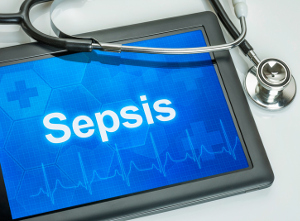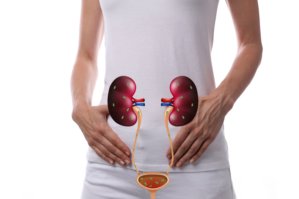afterLoad (456.34KB) (6.79ms)
afterInitialise (1.28MB) (36.89ms)
afterRoute (840KB) (15.84ms)
beforeRenderComponent com_tags (20.62KB) (322μs)
afterRenderComponent com_tags (1.39MB) (92.19ms)
afterDispatch (27.41KB) (7.21ms)
beforeRenderRawModule mod_articles_category (READ MORE...) (439.86KB) (24.24ms)
Before Access::preloadComponents (all components) (50.9KB) (564μs)
After Access::preloadComponents (all components) (103.05KB) (4.41ms)
Before Access::getAssetRules (id:8 name:com_content) (840B) (25μs)
After Access::getAssetRules (id:8 name:com_content) (7.05KB) (57μs)
afterRenderRawModule mod_articles_category (READ MORE...) (2.04KB) (163ms)
beforeRenderRawModule mod_custom (BOOST YOUR IMMUNE DEFENSE) (6.45KB) (34μs)
afterRenderRawModule mod_custom (BOOST YOUR IMMUNE DEFENSE) (3.8KB) (232μs)
beforeRenderRawModule mod_tags_popular (Search) (2.36KB) (16μs)
afterRenderRawModule mod_tags_popular (Search) (15.19KB) (197ms)
beforeRenderRawModule mod_custom (Get additionel and more detailed knowledge ) (816B) (36μs)
afterRenderRawModule mod_custom (Get additionel and more detailed knowledge ) (1.55KB) (72μs)
beforeRenderRawModule mod_custom (Overview of vitamins, minerals, and essential fatty acids) (768B) (12μs)
afterRenderRawModule mod_custom (Overview of vitamins, minerals, and essential fatty acids) (960B) (25μs)
beforeRenderRawModule mod_custom (Q10 goes by many names) (608B) (10μs)
afterRenderRawModule mod_custom (Q10 goes by many names) (928B) (20μs)
beforeRenderRawModule mod_custom (Check this before you buy a Q10 product) (752B) (10μs)
afterRenderRawModule mod_custom (Check this before you buy a Q10 product) (944B) (19μs)
beforeRenderRawModule mod_custom (Are you taking supplements) (736B) (10μs)
afterRenderRawModule mod_custom (Are you taking supplements) (1.03KB) (18μs)
beforeRenderRawModule mod_custom (Weight loss that works) (736B) (9μs)
afterRenderRawModule mod_custom (Weight loss that works) (1.03KB) (18μs)
beforeRenderRawModule mod_custom (Antiaging) (720B) (9μs)
afterRenderRawModule mod_custom (Antiaging) (912B) (17μs)
beforeRenderRawModule mod_menu (Are you getting enough vitamins and minerals?) (2.5KB) (11μs)
afterRenderRawModule mod_menu (Are you getting enough vitamins and minerals?) (22.39KB) (2.15ms)
beforeRenderRawModule mod_menu (The key to increased well-being) (736B) (29μs)
afterRenderRawModule mod_menu (The key to increased well-being) (17.83KB) (672μs)
beforeRenderRawModule mod_menu (Did you know.....) (720B) (21μs)
afterRenderRawModule mod_menu (Did you know.....) (25.52KB) (327μs)
beforeRenderRawModule mod_custom (Useful Links) (1.06KB) (15μs)
afterRenderRawModule mod_custom (Useful Links) (1.02KB) (657μs)
beforeRenderRawModule mod_custom (Chronic fatigue tied Alan to his bed but Q10 capsules saved him:) (244.28KB) (10.73ms)
afterRenderRawModule mod_custom (Chronic fatigue tied Alan to his bed but Q10 capsules saved him:) (1.06KB) (55μs)
beforeRenderModule mod_custom (Chronic fatigue tied Alan to his bed but Q10 capsules saved him:) (768B) (5μs)
afterRenderModule mod_custom (Chronic fatigue tied Alan to his bed but Q10 capsules saved him:) (1.3KB) (84μs)
beforeRenderRawModule mod_custom (Cholesterol-lowering without side effects:) (368B) (13μs)
afterRenderRawModule mod_custom (Cholesterol-lowering without side effects:) (1.06KB) (23μs)
beforeRenderModule mod_custom (Cholesterol-lowering without side effects:) (752B) (2μs)
afterRenderModule mod_custom (Cholesterol-lowering without side effects:) (1.28KB) (31μs)
beforeRenderModule mod_articles_category (READ MORE...) (20.82KB) (385μs)
afterRenderModule mod_articles_category (READ MORE...) (1.25KB) (46μs)
beforeRenderModule mod_custom (BOOST YOUR IMMUNE DEFENSE) (6.81KB) (4.07ms)
afterRenderModule mod_custom (BOOST YOUR IMMUNE DEFENSE) (1.28KB) (96μs)
beforeRenderModule mod_tags_popular (Search) (1.98KB) (16μs)
afterRenderModule mod_tags_popular (Search) (1.27KB) (29μs)
beforeRenderModule mod_custom (Get additionel and more detailed knowledge ) (1.17KB) (12μs)
afterRenderModule mod_custom (Get additionel and more detailed knowledge ) (1.3KB) (24μs)
beforeRenderModule mod_custom (Overview of vitamins, minerals, and essential fatty acids) (384B) (9μs)
afterRenderModule mod_custom (Overview of vitamins, minerals, and essential fatty acids) (1.31KB) (22μs)
beforeRenderModule mod_custom (Q10 goes by many names) (208B) (10μs)
afterRenderModule mod_custom (Q10 goes by many names) (1.27KB) (22μs)
beforeRenderModule mod_custom (Check this before you buy a Q10 product) (352B) (9μs)
afterRenderModule mod_custom (Check this before you buy a Q10 product) (1.28KB) (22μs)
beforeRenderModule mod_custom (Are you taking supplements) (352B) (8μs)
afterRenderModule mod_custom (Are you taking supplements) (1.28KB) (22μs)
beforeRenderModule mod_custom (Weight loss that works) (336B) (9μs)
afterRenderModule mod_custom (Weight loss that works) (1.27KB) (21μs)
beforeRenderModule mod_custom (Antiaging) (336B) (8μs)
afterRenderModule mod_custom (Antiaging) (3.77KB) (21μs)
beforeRenderModule mod_menu (Are you getting enough vitamins and minerals?) (2.13KB) (11μs)
afterRenderModule mod_menu (Are you getting enough vitamins and minerals?) (1.3KB) (22μs)
beforeRenderModule mod_menu (The key to increased well-being) (352B) (10μs)
afterRenderModule mod_menu (The key to increased well-being) (1.28KB) (20μs)
beforeRenderModule mod_menu (Did you know.....) (336B) (10μs)
afterRenderModule mod_menu (Did you know.....) (1.27KB) (20μs)
beforeRenderModule mod_custom (Useful Links) (1.44KB) (8μs)
afterRenderModule mod_custom (Useful Links) (1.27KB) (20μs)
beforeRenderRawModule mod_menu (Main Menu - English) (29.14KB) (3.91ms)
afterRenderRawModule mod_menu (Main Menu - English) (186.95KB) (9.83ms)
beforeRenderModule mod_menu (Main Menu - English) (720B) (7μs)
afterRenderModule mod_menu (Main Menu - English) (4.86KB) (88μs)
beforeRenderRawModule mod_languages (Sprogskift) (3.94KB) (23μs)
afterRenderRawModule mod_languages (Sprogskift) (28.06KB) (4.02ms)
beforeRenderModule mod_languages (Sprogskift) (720B) (8μs)
afterRenderModule mod_languages (Sprogskift) (5.31KB) (24μs)
beforeRenderRawModule mod_finder () (6.34KB) (15μs)
afterRenderRawModule mod_finder () (128.59KB) (13.48ms)
beforeRenderModule mod_finder () (704B) (7μs)
afterRenderModule mod_finder () (3.29KB) (42μs)
beforeRenderRawModule mod_custom () (6.62KB) (2.56ms)
afterRenderRawModule mod_custom () (22.64KB) (6.22ms)
beforeRenderModule mod_custom () (704B) (8μs)
afterRenderModule mod_custom () (1.23KB) (69μs)
beforeRenderRawModule mod_menu (Main Menu - English) (5.07KB) (130μs)
afterRenderRawModule mod_menu (Main Menu - English) (6.3KB) (4.06ms)
beforeRenderModule mod_menu (Main Menu - English) (720B) (8μs)
afterRenderModule mod_menu (Main Menu - English) (1.25KB) (83μs)
beforeRenderRawModule mod_languages (Sprogskift Mobil) (912B) (24μs)
afterRenderRawModule mod_languages (Sprogskift Mobil) (3.89KB) (805μs)
beforeRenderModule mod_languages (Sprogskift Mobil) (720B) (4μs)
afterRenderModule mod_languages (Sprogskift Mobil) (1.27KB) (1.05ms)
beforeRenderRawModule mod_finder () (2.3KB) (24μs)
afterRenderRawModule mod_finder () (6.29KB) (6.64ms)
beforeRenderModule mod_finder () (704B) (7μs)
afterRenderModule mod_finder () (1.23KB) (66μs)
beforeRenderRawModule mod_custom () (8.66KB) (207μs)
afterRenderRawModule mod_custom () (904B) (200μs)
beforeRenderModule mod_custom () (704B) (3μs)
afterRenderModule mod_custom () (2.43KB) (28μs)
beforeRenderRawModule mod_custom () (688B) (85μs)
afterRenderRawModule mod_custom () (896B) (100μs)
beforeRenderModule mod_custom () (704B) (2μs)
afterRenderModule mod_custom () (2.71KB) (23μs)
afterRender (302.66KB) (31.55ms)
| 1 x afterRenderRawModule mod_tags_popular (Search) (15.19KB) (30.02%) | 196.64ms |
| 1 x afterRenderRawModule mod_articles_category (READ MORE...) (2.04KB) (24.94%) | 163.35ms |
| 1 x afterRenderComponent com_tags (1.39MB) (14.08%) | 92.19ms |
| 1 x afterInitialise (1.28MB) (5.63%) | 36.89ms |
| 1 x afterRender (302.66KB) (4.82%) | 31.55ms |
| 1 x beforeRenderRawModule mod_articles_category (READ MORE...) (439.86KB) (3.7%) | 24.24ms |
| 1 x afterRoute (840KB) (2.42%) | 15.84ms |
| 1 x afterRenderRawModule mod_finder () (128.59KB) (2.06%) | 13.48ms |
| 1 x beforeRenderRawModule mod_custom (Chronic fatigue tied Alan to his bed but Q10 capsules saved him:) (244.28KB) (1.64%) | 10.73ms |
| 1 x afterRenderRawModule mod_menu (Main Menu - English) (186.95KB) (1.5%) | 9.83ms |
| 1 x afterDispatch (27.41KB) (1.1%) | 7.21ms |
| 1 x afterLoad (456.34KB) (1.04%) | 6.79ms |
| 1 x afterRenderRawModule mod_finder () (6.29KB) (1.01%) | 6.64ms |
| 1 x afterRenderRawModule mod_custom () (22.64KB) (0.95%) | 6.22ms |
| 1 x After Access::preloadComponents (all components) (103.05KB) (0.67%) | 4.41ms |
| 1 x beforeRenderModule mod_custom (BOOST YOUR IMMUNE DEFENSE) (6.81KB) (0.62%) | 4.07ms |
| 1 x afterRenderRawModule mod_menu (Main Menu - English) (6.3KB) (0.62%) | 4.06ms |
| 1 x afterRenderRawModule mod_languages (Sprogskift) (28.06KB) (0.61%) | 4.02ms |
| 1 x beforeRenderRawModule mod_menu (Main Menu - English) (29.14KB) (0.6%) | 3.91ms |
| 1 x beforeRenderRawModule mod_custom () (6.62KB) (0.39%) | 2.56ms |
| 1 x afterRenderRawModule mod_menu (Are you getting enough vitamins and minerals?) (22.39KB) (0.33%) | 2.15ms |
| 1 x afterRenderModule mod_languages (Sprogskift Mobil) (1.27KB) (0.16%) | 1.05ms |
| 1 x afterRenderRawModule mod_languages (Sprogskift Mobil) (3.89KB) (0.12%) | 805μs |
| 1 x afterRenderRawModule mod_menu (The key to increased well-being) (17.83KB) (0.1%) | 672μs |
| 1 x afterRenderRawModule mod_custom (Useful Links) (1.02KB) (0.1%) | 657μs |
| 1 x Before Access::preloadComponents (all components) (50.9KB) (0.09%) | 564μs |
| 1 x beforeRenderModule mod_articles_category (READ MORE...) (20.82KB) (0.06%) | 385μs |
| 1 x afterRenderRawModule mod_menu (Did you know.....) (25.52KB) (0.05%) | 327μs |
| 1 x beforeRenderComponent com_tags (20.62KB) (0.05%) | 322μs |
| 1 x afterRenderRawModule mod_custom (BOOST YOUR IMMUNE DEFENSE) (3.8KB) (0.04%) | 232μs |
| 1 x beforeRenderRawModule mod_custom () (8.66KB) (0.03%) | 207μs |
| 1 x afterRenderRawModule mod_custom () (904B) (0.03%) | 200μs |
| 1 x beforeRenderRawModule mod_menu (Main Menu - English) (5.07KB) (0.02%) | 130μs |
| 1 x afterRenderRawModule mod_custom () (896B) (0.02%) | 100μs |
| 1 x afterRenderModule mod_custom (BOOST YOUR IMMUNE DEFENSE) (1.28KB) (0.01%) | 96μs |
| 1 x afterRenderModule mod_menu (Main Menu - English) (4.86KB) (0.01%) | 88μs |
| 1 x beforeRenderRawModule mod_custom () (688B) (0.01%) | 85μs |
| 1 x afterRenderModule mod_custom (Chronic fatigue tied Alan to his bed but Q10 capsules saved him:) (1.3KB) (0.01%) | 84μs |
| 1 x afterRenderModule mod_menu (Main Menu - English) (1.25KB) (0.01%) | 83μs |
| 1 x afterRenderRawModule mod_custom (Get additionel and more detailed knowledge ) (1.55KB) (0.01%) | 72μs |
| 1 x afterRenderModule mod_custom () (1.23KB) (0.01%) | 69μs |
| 1 x afterRenderModule mod_finder () (1.23KB) (0.01%) | 66μs |
| 1 x After Access::getAssetRules (id:8 name:com_content) (7.05KB) (0.01%) | 57μs |
| 1 x afterRenderRawModule mod_custom (Chronic fatigue tied Alan to his bed but Q10 capsules saved him:) (1.06KB) (0.01%) | 55μs |
| 1 x afterRenderModule mod_articles_category (READ MORE...) (1.25KB) (0.01%) | 46μs |
| 1 x afterRenderModule mod_finder () (3.29KB) (0.01%) | 42μs |
| 1 x beforeRenderRawModule mod_custom (Get additionel and more detailed knowledge ) (816B) (0.01%) | 36μs |
| 1 x beforeRenderRawModule mod_custom (BOOST YOUR IMMUNE DEFENSE) (6.45KB) (0.01%) | 34μs |
| 1 x afterRenderModule mod_custom (Cholesterol-lowering without side effects:) (1.28KB) (0%) | 31μs |
| 1 x beforeRenderRawModule mod_menu (The key to increased well-being) (736B) (0%) | 29μs |
| 1 x afterRenderModule mod_tags_popular (Search) (1.27KB) (0%) | 29μs |
| 1 x afterRenderModule mod_custom () (2.43KB) (0%) | 28μs |
| 1 x Before Access::getAssetRules (id:8 name:com_content) (840B) (0%) | 25μs |
| 1 x afterRenderRawModule mod_custom (Overview of vitamins, minerals, and essential fatty acids) (960B) (0%) | 25μs |
| 1 x afterRenderModule mod_custom (Get additionel and more detailed knowledge ) (1.3KB) (0%) | 24μs |
| 1 x afterRenderModule mod_languages (Sprogskift) (5.31KB) (0%) | 24μs |
| 1 x beforeRenderRawModule mod_finder () (2.3KB) (0%) | 24μs |
| 1 x beforeRenderRawModule mod_languages (Sprogskift Mobil) (912B) (0%) | 24μs |
| 1 x afterRenderRawModule mod_custom (Cholesterol-lowering without side effects:) (1.06KB) (0%) | 23μs |
| 1 x beforeRenderRawModule mod_languages (Sprogskift) (3.94KB) (0%) | 23μs |
| 1 x afterRenderModule mod_custom () (2.71KB) (0%) | 23μs |
| 1 x afterRenderModule mod_custom (Overview of vitamins, minerals, and essential fatty acids) (1.31KB) (0%) | 22μs |
| 1 x afterRenderModule mod_custom (Q10 goes by many names) (1.27KB) (0%) | 22μs |
| 1 x afterRenderModule mod_custom (Check this before you buy a Q10 product) (1.28KB) (0%) | 22μs |
| 1 x afterRenderModule mod_custom (Are you taking supplements) (1.28KB) (0%) | 22μs |
| 1 x afterRenderModule mod_menu (Are you getting enough vitamins and minerals?) (1.3KB) (0%) | 22μs |
| 1 x beforeRenderRawModule mod_menu (Did you know.....) (720B) (0%) | 21μs |
| 1 x afterRenderModule mod_custom (Weight loss that works) (1.27KB) (0%) | 21μs |
| 1 x afterRenderModule mod_custom (Antiaging) (3.77KB) (0%) | 21μs |
| 1 x afterRenderRawModule mod_custom (Q10 goes by many names) (928B) (0%) | 20μs |
| 1 x afterRenderModule mod_menu (The key to increased well-being) (1.28KB) (0%) | 20μs |
| 1 x afterRenderModule mod_menu (Did you know.....) (1.27KB) (0%) | 20μs |
| 1 x afterRenderModule mod_custom (Useful Links) (1.27KB) (0%) | 20μs |
| 1 x afterRenderRawModule mod_custom (Check this before you buy a Q10 product) (944B) (0%) | 19μs |
| 1 x afterRenderRawModule mod_custom (Weight loss that works) (1.03KB) (0%) | 18μs |
| 1 x afterRenderRawModule mod_custom (Are you taking supplements) (1.03KB) (0%) | 18μs |
| 1 x afterRenderRawModule mod_custom (Antiaging) (912B) (0%) | 17μs |
| 1 x beforeRenderRawModule mod_tags_popular (Search) (2.36KB) (0%) | 16μs |
| 1 x beforeRenderModule mod_tags_popular (Search) (1.98KB) (0%) | 16μs |
| 1 x beforeRenderRawModule mod_custom (Useful Links) (1.06KB) (0%) | 15μs |
| 2 x beforeRenderModule mod_menu (Main Menu - English) (720B) (0%) | 15μs |
| 1 x beforeRenderRawModule mod_finder () (6.34KB) (0%) | 15μs |
| 2 x beforeRenderModule mod_finder () (704B) (0%) | 14μs |
| 1 x beforeRenderRawModule mod_custom (Cholesterol-lowering without side effects:) (368B) (0%) | 13μs |
| 3 x beforeRenderModule mod_custom () (704B) (0%) | 13μs |
| 1 x beforeRenderRawModule mod_custom (Overview of vitamins, minerals, and essential fatty acids) (768B) (0%) | 12μs |
| 1 x beforeRenderModule mod_custom (Get additionel and more detailed knowledge ) (1.17KB) (0%) | 12μs |
| 1 x beforeRenderRawModule mod_menu (Are you getting enough vitamins and minerals?) (2.5KB) (0%) | 11μs |
| 1 x beforeRenderModule mod_menu (Are you getting enough vitamins and minerals?) (2.13KB) (0%) | 11μs |
| 1 x beforeRenderRawModule mod_custom (Check this before you buy a Q10 product) (752B) (0%) | 10μs |
| 1 x beforeRenderRawModule mod_custom (Are you taking supplements) (736B) (0%) | 10μs |
| 1 x beforeRenderModule mod_custom (Q10 goes by many names) (208B) (0%) | 10μs |
| 1 x beforeRenderModule mod_menu (The key to increased well-being) (352B) (0%) | 10μs |
| 1 x beforeRenderModule mod_menu (Did you know.....) (336B) (0%) | 10μs |
| 1 x beforeRenderRawModule mod_custom (Q10 goes by many names) (608B) (0%) | 10μs |
| 1 x beforeRenderRawModule mod_custom (Weight loss that works) (736B) (0%) | 9μs |
| 1 x beforeRenderModule mod_custom (Overview of vitamins, minerals, and essential fatty acids) (384B) (0%) | 9μs |
| 1 x beforeRenderModule mod_custom (Check this before you buy a Q10 product) (352B) (0%) | 9μs |
| 1 x beforeRenderModule mod_custom (Weight loss that works) (336B) (0%) | 9μs |
| 1 x beforeRenderRawModule mod_custom (Antiaging) (720B) (0%) | 9μs |
| 1 x beforeRenderModule mod_custom (Are you taking supplements) (352B) (0%) | 8μs |
| 1 x beforeRenderModule mod_custom (Antiaging) (336B) (0%) | 8μs |
| 1 x beforeRenderModule mod_custom (Useful Links) (1.44KB) (0%) | 8μs |
| 1 x beforeRenderModule mod_languages (Sprogskift) (720B) (0%) | 8μs |
| 1 x beforeRenderModule mod_custom (Chronic fatigue tied Alan to his bed but Q10 capsules saved him:) (768B) (0%) | 5μs |
| 1 x beforeRenderModule mod_languages (Sprogskift Mobil) (720B) (0%) | 4μs |
| 1 x beforeRenderModule mod_custom (Cholesterol-lowering without side effects:) (752B) (0%) | 2μs |
 Active vitamin protects us against virus infections in a number of different ways. Vitamin D also controls the inflammatory processes and prevents them from becoming complicated. In a review article published in World Journal of Virology, scientists have pored over multiple meta-analyses and placebo-controlled studies that show a clear relation between vitamin D deficiency and an increased risk of respiratory viruses such as COVID-19 and influenza. Being vitamin D-deficient can also increase the risk of these infections turning into SARS (severe acute respiratory syndrome) that can result in potentially life-threatening circulatory failure and organ failure. Apparently, vitamin D plays an important and overlooked role in the prevention of virus infections.
Active vitamin protects us against virus infections in a number of different ways. Vitamin D also controls the inflammatory processes and prevents them from becoming complicated. In a review article published in World Journal of Virology, scientists have pored over multiple meta-analyses and placebo-controlled studies that show a clear relation between vitamin D deficiency and an increased risk of respiratory viruses such as COVID-19 and influenza. Being vitamin D-deficient can also increase the risk of these infections turning into SARS (severe acute respiratory syndrome) that can result in potentially life-threatening circulatory failure and organ failure. Apparently, vitamin D plays an important and overlooked role in the prevention of virus infections.







 Blood poisoning, also called sepsis, is a life-threatening condition that requires immediate medical attention. A combination of high-dosed, intravenously administered
Blood poisoning, also called sepsis, is a life-threatening condition that requires immediate medical attention. A combination of high-dosed, intravenously administered 

 Although the course of disease for most people with COVID-19 is rather mild, the greatest concern is the life-threatening complications in the respiratory tract caused by oxidative stress and cytokine storm where the immune system attacks healthy tissue. Scientists are busy looking for new therapies such as intravenous
Although the course of disease for most people with COVID-19 is rather mild, the greatest concern is the life-threatening complications in the respiratory tract caused by oxidative stress and cytokine storm where the immune system attacks healthy tissue. Scientists are busy looking for new therapies such as intravenous 

 Bladder infection is one of the most widespread bacterial infections. It can lead to serious complications such as kidney infections and blood poisoning. A team of scientists from University of Queensland in Australia has discovered new details about
Bladder infection is one of the most widespread bacterial infections. It can lead to serious complications such as kidney infections and blood poisoning. A team of scientists from University of Queensland in Australia has discovered new details about  Pneumonia is a serious disease, from which more than one million people die each year. A team of scientists from Melbourne University in Australia has now discovered how the trace element
Pneumonia is a serious disease, from which more than one million people die each year. A team of scientists from Melbourne University in Australia has now discovered how the trace element  "After about one week of taking the Q10 supplement I could feel a huge difference," says 23-year old Alan Piccini, who has been suffering from extreme fatigue and muscle aches ever since he was a child.
"After about one week of taking the Q10 supplement I could feel a huge difference," says 23-year old Alan Piccini, who has been suffering from extreme fatigue and muscle aches ever since he was a child. “Taking capsules with co-enzyme Q10 has freed me of the severe side effects of my cholesterol lowering medicine,” Mrs Franken explains.
“Taking capsules with co-enzyme Q10 has freed me of the severe side effects of my cholesterol lowering medicine,” Mrs Franken explains.